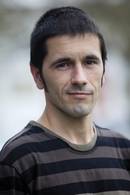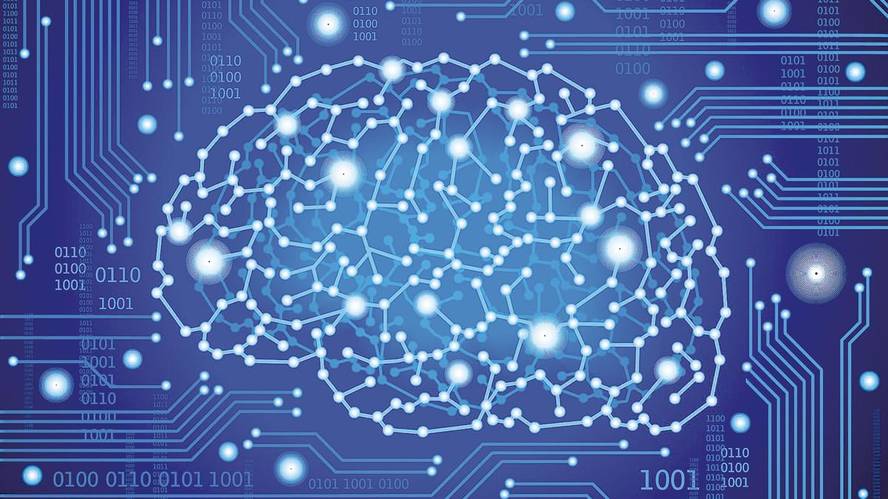Man or machine?
In Blade Runner, agent Deckard was in charge of detecting and "retiring" revolted "replicants" (synthetic bioengineering employees), which were detected by the Voight-Kampff fiction test. In the 2004 remake of the Battlestar Galactica series they used a blood and radioactivity test to detect the malignant humanoids Cylon (CYbernetic LifefOrm Node).
These tests are very complex, since in the future fictions in which they are located, robots, in addition to having the appearance and composition of humans, have the same intelligence as humans and the separation of machines from humans is really difficult. However, the machines or software of the current reality are not so sophisticated and the simplest test that bears its name, created in 1950 by Alan Turing, is the most known and used to solve if you can consider a smart machine.
Alan Turing and his test
Despite his ignorance to the general public, the British mathematician Alan Mathison Turing performed the XX. He is an important character of the 20th century. II. During the World War he managed to break the German encryption system Enigma, and the most important contribution of the mathematician was to take the first steps of computing: The idea of universal machine that he created in 1936 was the current concept of computers.
As mentioned, another important contribution of the mathematician is the Turing test. In 1950, while reflecting on what computers could do in the future, he addressed the issue of artificial intelligence and raised whether machines could become intelligent. He wondered if machines could think, but unable to easily define what thinking is, he posed the problem in a more concrete way: if machines would be able to act as human beings. Therefore, it would be understood that a machine could think if a human being, in dialogue with the machine, could not be separated from the human being. This test, designed by Turing, although criticized and discussed, has so far been the most accepted method to differentiate machines and humans or to consider intelligent software.
CAPTCHA tests, so commonly used on the web (letters misplaced in comments or records to avoid spam), are considered as the reverse variant of the Turing test, where the evaluator is a machine and not a human being. The acronym CAPTCHA means “Completely Automated Public Turing test to tell Computers and Humans Apartat” and indicates something that we would return. Due to the improvement of spam software, CAPTCHA is also increasingly complicated. I myself fail so many times, where I am almost sure that I am a robot... ;-)
Eugene Goostman, the first intelligent machine?
In June of this year, members of the University of Reading published the news that a machine surpassed the Turing test for the first time, and appeared in almost every media. Software Eugene Goostman passed the test in a contest organized by this university on the occasion of the 60th anniversary of Turing's death.
So, according to the definition of the test, can you consider a smart machine? Taking up the examples of science fiction, are we facing the creation of Skynet, HAL 9000 or Matrix? Well, not for the moment, and they say we are quite far away. The University of Reading and, above all, the competition organizer, Kevin Warwick, have been criticized for such ambitious predictions.
And the Turing test, as he defined, is very open, it is an idea, but it can have many ways to implement it. The competition has been organized in a different way and Eugene Goostman has passed the test according to the established parameters. 33% of the jury members made them believe that he was human and the organization passed the test by exceeding the 30% threshold. This threshold is based on a Turing phrase that, in defining its test, predicted that for 50 years a standard pollster would have less than a 70% chance of separating a machine from a human being in an interview. Warwick and his team are accused of interpreting much of this phrase that Turné placed the threshold by 30%. (Curiosity: 2001 says: That the date of A space odyssey may be taken from that Turing prophecy as homage to Arthur C. Author Clarke makes explicit reference to Turing's 1950 article. And there is no doubt that the HAL 9000 surpasses the Turing test! ;-).
On the other hand, it is not the first time the test is passed. In other times and in other competitions, other software has also managed to deceive judges in greater percentage (up to almost 60%). The organizers of this Reading contest do not consider these software valid, but theirs, and although they give reasons for this (number of judges, no limitation of questions...), it is the excess license.
Eugene Goostman is accused of playing with advantage. When he appeared, he said he was a 13-year-old Ukrainian boy and that English had a second language. It has been said that this is why judges would more easily forgive him mistakes or ignorances.
And finally, much has been said about the usefulness of the Turing test, arguing if it is not obsolete. And it is that at the time when it was invented we knew nothing about computers and what they could do (nor did they exist! ). And today we know that in certain tasks they can have very good results without having a real intelligence. With high computing capacity, many relatively simple data and algorithms can achieve spectacular results, such as those obtained by Deep Blue in chess and Watson in answering questions. The same can be said of the task of imitating a conversation, which is done correctly does not mean that a smart machine has been achieved.
Taking up this thread, we would return to Turing's initial philosophical reflection: what is intelligence, how to demonstrate that it is something intelligent, etc. In short, a philosophical debate on artificial intelligence. And there are different schools. According to the theory of computational intelligence, for example, the human brain is a system of information processing and thinking, a type of computing. According to them, machines or software can or can become intelligent. On the contrary, there are those who consider that human consciousness is non-algorithmic and that it can never be modeled through a Turing machine type computer.
You cannot know if in the future we will be able to build really intelligent machines. Even though he has announced it to us, that moment has not arrived, and surely there is still much to come. But Eugene Goostman is one more step on this path. Every day small advances are made in many tasks that can only be performed with a characteristic intelligence of the human being. If this is followed, I do not know if philosophically what is to be achieved can be considered as intelligence, but if it imitates intelligence from the human mind to the inseparable, perhaps it is the same for practical purposes, as Turing said...







